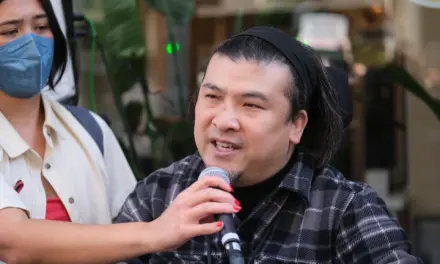3 MIN READBy REV. LUNA DINGAYAN
www.nordis.net
“By means of his faith Abel still speaks, even though he is dead.” — Hebrews 11:4b
Meaning of Ninoy’s death
August 21 is marked a holiday in our nation’s calendar. We commemorate the death of a man whose brutal assassination had sparked a mass movement that led to the downfall of the Marcos dictatorial regime. The meaning of Ninoy’s death can be found in the way he lived his life. He courageously stood against the Marcos dictatorship at the time when political compromise and dancing with the Dictator seemed to be the more prudent thing politicians could do.
For challenging the Dictator, Ninoy suffered imprisonment and self-exile until he decided to come home only to be killed at the tarmac of the Manila International Airport, allegedly by the instruments of the Marcos regime. About a dozen soldiers were charged and convicted for the crime of murder. Some of them died in prison, while the others were released after serving their sentence, but still claiming innocence. Up to now, the world is still wondering as to the mastermind of this one of the unsolved and mysterious assassinations in human history.
Ninoy left us an enduring message that could help us chart our nation’s future if we would really care to listen to him. In his speech before the Asia Society on August 4, 1980 in New York City, he said, “I have asked myself many times: Is the Filipino worth suffering, or even dying for? Is he not a coward who would readily yield to any colonizer, be it foreign or home-grown? Is a Filipino more comfortable under an authoritarian leader because he does not want to be burdened with the freedom of choice? Is he unprepared, or worse, ill-suited for presidential or parliamentary democracy? I have carefully weighed the virtues and the faults of the Filipino and I have come to the conclusion that he is worth dying for because he is the nation’s greatest untapped resource.”
In spite of all the imperfections, shortcomings, and limitations of the Filipino, Ninoy still believed that the Filipino is worth dying for. He had great faith in the Filipino. Human resource for him is still the best resource that a nation can have. But something should be done so that this “untapped resource” can be utilized for nation building.
Men of faith speak even though they are dead
The writer of the Book of Hebrews gives us a beautiful definition of faith. He says, “To have faith is to be sure of the things we hope for, to be certain of the things we cannot see” (Heb. 11:1). And he goes on to enumerate the heroes of faith, who made a big difference in human history, because of their faith in God and in themselves. He says, “By means of his faith Abel still speaks, even though he is dead” (Heb. 11:4b).
Ninoy was silenced by the Marcos regime. The powers-that-be thought that they could silence a person by killing him. “Dead persons tell no tales,” they say. But they are grossly mistaken, because men and women of faith speak even though they are dead. Ninoy speaks to us by the life he lived and by the death he died.
To die for the Filipino is to live for the Filipino
The Filipino is worth dying for, says Ninoy. Ninoy’s death was the consequence of his life. Like any genuine journalist, he was a true prophet of our time. He exposed the truth and tried to raise people’s consciousness on the country’s real situation. He courageously spoke the truth with his “double barrelled tongue.” He was one of the bitterest critics of the Marcos regime.
Perhaps, Ninoy will still be alive today, if he did not oppose the Marcos dictatorship and remained silent about the excesses of the Marcos regime. Perhaps, he did not suffer imprisonment or even self-exile, if he compromised with the powers-that-be. He could have remained in the U.S. and lived a comfortable life.
But that was not his decision. He had to come home and be with the Filipino people, even if that would mean his death.
To honor Ninoy is to implement land reform
It is important to note that while we celebrate Ninoy’s heroism in giving his life for the Filipino people, farmers in the Hacienda Luisita are yet to receive the fruits of genuine land reform. It seems that the owners of the Hacienda – the relatives of Ninoy – have no genuine faith in the Filipino. Unlike Ninoy, they seem not to believe that the Filipino is worth dying for. It seems that for them the Filipino peasants are just meant to be exploited and cheated of their rightful claims.
Without giving lands to the tillers in Hacienda Luisita, the commemoration of Ninoy’s death would just be “a sounding brass and a tinkling cymbal.” To honor Ninoy’s heroism is to implement genuine land reform, especially in Hacienda Luisita. # nordis.net
















